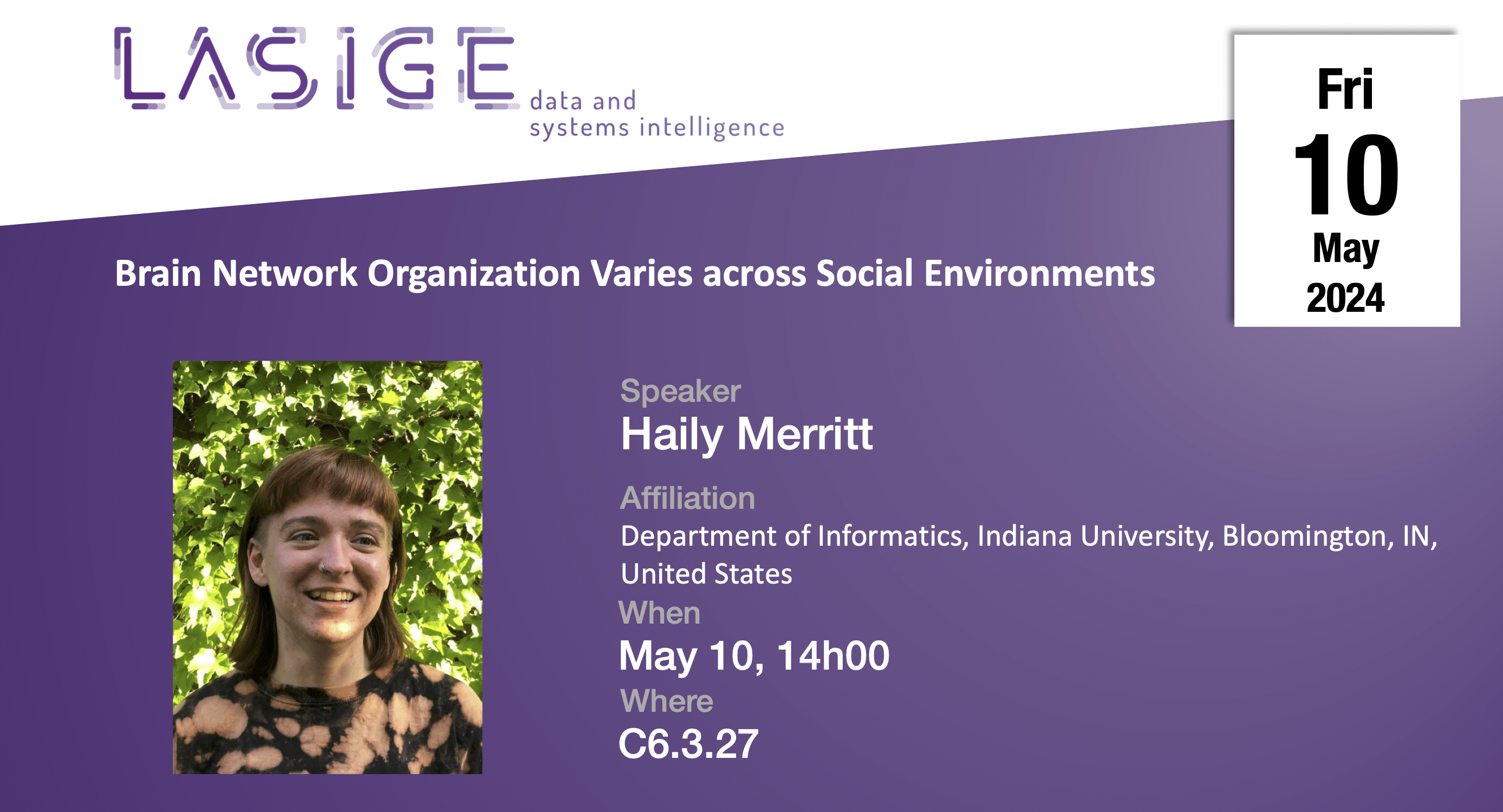Title: Brain Network Organization Varies across Social Environments
Speaker: Haily Merritt (Indiana University)
When: May 10, 14h00
Where: FCUL, C6.3.27
(includes coffee-break)
Abstract: In recent years, network neuroscience has seen a shift from studying group-representative patterns of brain network organization and dynamics to variation across contexts and individuals. This variation is driven by myriad factors, including disease status, age, and environment, among others. Given the pervasive impact our social relationships have on our health and wellbeing, it is especially important to understand social influences on brain network organization. In this talk, I will describe two recent projects that use methods from network neuroscience to investigate how brain network organization varies across social environments. In the first project, we use multilayer modeling to identify patterns of stability and variation in the associations between brain network organization and social contexts. We find that subcortical and control systems are especially sensitive to different constructs of perceived social support. In the second project, we cluster thousands of adolescents from the ABCD dataset based on measures of social environment quality to identify “envirotypes,” which we find have dissociable patterns of brain network organization. We leverage the longitudinality of ABCD to clarify envirotype dynamics and their associated outcomes on a suite of clinical, cognitive, and behavioral measures. Altogether, this work emphasizes the meaningful variability of brain network organization and the contextuality of brain-based biomarkers for disease, cognitive performance, and behavior.
Bio: Haily Merritt is a dual PhD candidate at Indiana University in Cognitive Science and Informatics (Complex Network and Systems track). She is interested in using methodological tools from complex systems science to study the origins and consequences of sociality. In particular, she uses network approaches to investigate how brain network organization varies across social environments.

